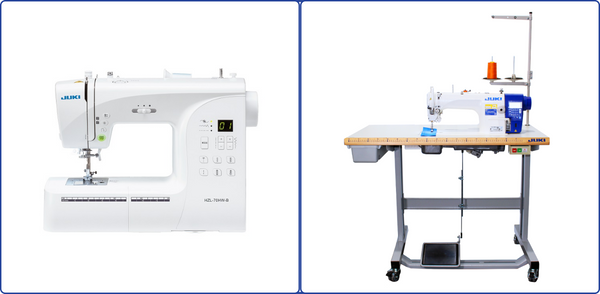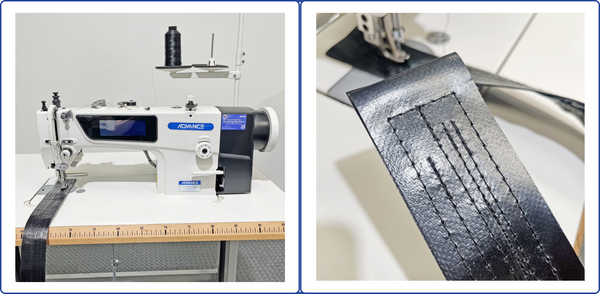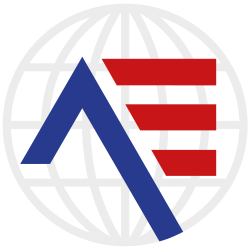It can be overwhelming when you’re trying to make a decision about which sewing machine is right for you, and whether investing in an industrial model is good idea. In this blog we aim to make the options clearer and help to guide you in the right direction.
Should I buy an industrial sewing machine?
That depends what you’ll be sewing and how often! We are one of the UK’s leading suppliers of industrial textile equipment so are happy to provide tailored advice if you’re looking to invest in an industrial sewing machine. However, an industrial sewing machine might not always be the best option for you. If you only sew occasionally as a hobby then a domestic machine is a brilliant piece of equipment for the job. Read on to find out more!
What is the main difference between domestic and industrial sewing machines?
There are many differences to consider, but the main one is the machine’s intended use. Domestic machines are designed to be versatile and handy for a wide range of hobby and home sewing applications. Industrial sewing machines are specialised for one specific application, and perform at higher speeds, for longer periods of time, whilst producing the highest quality stitching.

Can I use an industrial sewing machine at home?
You can absolutely use an industrial sewing machine at home, but there are a couple of factors to consider. They are larger and noisier than standard machines, and require more power to run. If you are looking to turn your sewing hobby into a business, you can chat to our team who will be able to recommend the best equipment for your requirements. If you only use your machine for hobby sewing projects, we’d recommend sticking with a domestic model.
Do I need an industrial sewing machine for sewing leather or heavy fabrics?
There are some domestic sewing machines which are marketed as being suitable for working with heavy fabrics, so if you only use these materials occasionally you can get by without an industrial machine. However, if you plan to work extensively with leather and other heavyweight materials, you can’t beat the power and durability of an industrial machine. An industrial “walking foot” is the best option, and will make sewing these materials much quicker and easier.
Are industrial sewing machines more expensive than domestic ones?
Yes, industrial sewing machines are generally (although not always) more expensive than domestic ones. This higher price tag reflects their increased durability, performance, and power. While domestic machines have plastic parts and small motors, industrial machines have sturdy metal parts and have much larger motors which are built into a tabletop with a stand. There are, however, some domestic machines with digital features which are more expensive than standard industrial models.
Do industrial sewing machines require special training to operate?
Operating an industrial machine may take some getting used to due to the increased speed and power compared to a domestic machine, but with a small amount of practice it’s no more difficult than using a domestic model. However, industrial machines don’t tend to have as many user-friendly features as hobby machines. If you are worried about getting started, we offer a delivery and installation service, with which our technicians will help you to get started. We are also on-hand to answer your questions and talk you through any teething problems via phone or facetime.
Can I use an industrial sewing machine for making clothes at home?
You can definitely use an industrial sewing machine for making clothes at home, but unless you are going to be running the machine all day on a regular basis then you may find that a domestic machine is a better option. They are more versatile and can produce a wide range of stitch types, whereas an industrial sewing machine will be specialised for one type of stitch.
What type of industrial sewing machine is best?
The answer to this question depends on your application and requirements. For example, the best machine for sewing leather would not be the same machine we’d recommend for sewing silk. The machines we supply are all from reputable brands that, in our extensive experience, provide the best value and quality results. For personalised advice, contact our team directly and we’d be happy to suggest options based on your sewing needs.
What is the difference between an industrial and heavy duty sewing machine?
An industrial sewing machine is essentially a professional standard piece of equipment which can be used for extended periods of time and is built for durability, speed, and power. A heavy duty sewing machine is any machine which is designed for working with thicker materials such as leather, as well as multiple layers. There are heavy duty industrial sewing machines, and there are also models which are specialised for working with lightweight fabrics.

Can a beginner use an industrial sewing machine?
A beginner can use an industrial sewing machine, but it may be easier to get started with a domestic machine as they run more slowly.
Does an industrial sewing machine have different stitches?
Unlike domestic models, industrial sewing machines don’t have a variety of stitch types available to select. It is possible to alter settings such as the stitch length, but a straight lockstitch machine couldn’t produce a zigzag stitch, for example. The exception to this is industrial pattern sewers and bartack machines, which can be digitally programmed to produce a wide variety of patterns. These are used for decorative and reinforcement stitching rather than for general sewing.
We’ve tried to cover as much as possibly here, but if you still have any questions or need advice then just get in touch and we’ll be happy to help!










